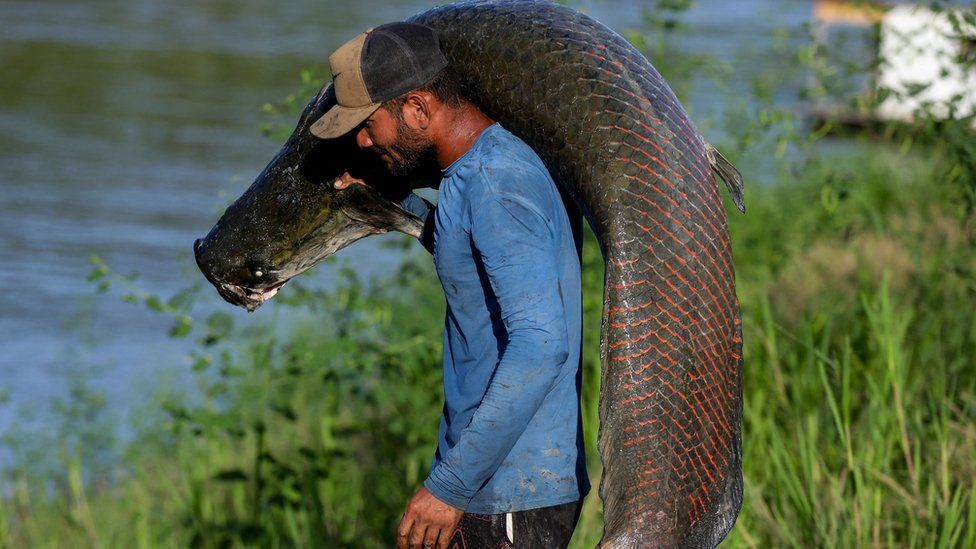-

-
-
Loading

Loading

Guillermo Otta Parum, a lifelong fisherman in the Bolivian Amazon, used to catch native fish like catfish in the river. However, a large freshwater fish called paiche or Arapaima Gigas arrived in the area, which surprised Guillermo. At first, he thought the paiche was dangerous and thought it might be poisonous. The paiche is one of the largest freshwater fishes in the world, growing up to 4m in length and weighing over 200kg. It is estimated that the paiche expands its territory by 40km each year, threatening native fish species. The exact year of its arrival in Bolivia is uncertain, but it is believed to have originated from a paiche fish farm in Peru. The paiche is a ravenous species, consuming a lot of fish in its early years. Unlike piranha, it has small teeth but still feeds on piranha and other fish, as well as plants, molluscs, and birds. Fishermen have reported a decline in some native species due to the paiche. Experts warn that the paiche will continue to spread and pose a threat to biodiversity. However, the arrival of the paiche has been beneficial for local fishermen, who initially feared it. They soon realized its potential and began selling and consuming paiche across Bolivia. Edson Suzano, who runs a paiche-processing plant, states that they sell it in supermarkets and markets, processing around 30,000kg per month. The challenge for fishermen is finding the paiche in the vast Amazon. The paiche prefers calm water and migrates when it feels threatened. As a result, fishermen travel to remote areas and clash with indigenous communities, who have land rights in those areas. These communities have started fishing for and selling the paiche, causing conflicts with commercial fishermen who need special licenses to operate in those areas. The indigenous communities argue that they are protecting their resources, which the Bolivian government recognizes they have a right to control. Scientists hope that fishing will help control paiche numbers and maintain a balance between different species.